|
My conversations with Wall Street are very different than those with Main Street. On Main Street, I hear a lot of people parroting sales pitches. Some might say, “I sold my bonds low in March! If I waited until today, I would have made hundreds of thousands of dollars.” (Not true.) Others say that stocks have gone “up and up and up!” (True of some, not true of a lot of others.) Both of these statements are misinformed, as you can see in the charts and information below. And these sentiments are not those held by Wall Street insiders. Bonds are Illiquid and Negative Yielding As you can see in the charts below, bonds are highly illiquid, even today. If you were trying to sell bonds today, you would have as much trouble as you had in March. Nobody wants to gamble 30 or 40 years on a bond that is paying them a measly 3-5% yield – when odds are so high that more debt will have to be issued at a higher rate (making the current bond completely illiquid) or debt will have to be restructured (making the bond a big loser). What’s just as important to note is that they were just as illiquid in December of 2019 – before the pandemic. So, what does Wall Street have to say about bonds? In my interview with the Chief Fixed Income Strategist of Charles Schwab Inc. Kathy Jones, she said: You could see depreciation in [treasuries] between the time you invest and the time they mature. One thing to do is to shorten the maturity or the duration. The longer the term, the more the risk of rates rising and seeing a price decline. With short term, you still have that safety and liquidity, but you’re not taking interest rate risk. Short-term T-bills are very liquid, as you can see in the chart above. You can read my blog Q&A with Kathy Jones at NataliePace.com/blog. You can watch my full interview with her on my YouTube.com/NataliePace channel. Your safe side shouldn’t be at risk of capital loss. In our retreats, we spend one full day on what’s safe. Bonds aren’t. Getting safe is a two-step process. The first step is to keep your money, so that you have the ability to buy low when asset values correct. The second step is to look for safe, income-producing hard assets that you purchase for a good price. You’ll have to consider what will be a steady, reliable income in a post-pandemic world. Things have changed dramatically for the foreseeable future. Of course, both of these steps require financial literacy and education (not what the broker-salesman sells you). Call 310-430-2397 to learn more. Stocks Are Hotter Than Ever: Errr… More Overpriced Than Ever Technology and biotechnology stocks are indeed hot, hot, hot. The old-school companies that are slow or negative growth and are heavily in debt are not hot at all. The markets have come back a little, but many of those companies are still way down. The ones that are up are propped up with bail-outs, and are at risk of financial fall-out. They can’t borrow from Peter to pay Paul forever, and they are getting to the point of no return (debt restructuring in a bankruptcy proceeding) to continue operating. The airline, travel, hospitality, retail, casino, oil, municipality and commercial real estate industries are all vulnerable right now. FANG companies (Facebook, Amazon, Apple, Netflix, Nvidia and Google) have been leading the U.S. economy for years now and have pushed the NASDAQ Composite Index to highs above what we saw in February of 2020 (pre-pandemic). However, the stocks are priced at astronomical levels. That is why Netflix stock is down 12% since reporting earnings on Oct. 20, 2020. Revenue growth was 23% and the net income of $790 million was higher than it had been in years – all great signs. However, investors are forward-looking. So, predictions of just 20% revenue growth in the 4th quarter, with net income that could be 22% lower sequentially, alongside an 82 price-earnings ratio, inspired traders to take profits. As Nobel Prize winning economist Robert Shiller has been warning since 2018, stock prices are alarmingly high. Shiller wrote, “The only time in history going back to 1881 when [stock prices] have been higher are, A: 1929 and B: 2000. We are at a high level, and its concerning. People should be cautious now.” The average price-earnings ratio is 16-17. Growth companies typically take a higher PE. However, Zoom’s PE is 740. Google’s is 35, with negative revenue growth in the most recent quarter. Nvidia’s is 98. Should Amazon be worth $1.6 trillion, when its sales and income are only $280.5 billion and $11.59 billion, respectively? Also, when stocks tanked -35% in March 2020, technology stocks sank, too. It’s difficult for even a great company to remain buoyant when economic storms roil the markets. The Biggest Bailout Index is Illiquid Daily we hear reports about the ups and downs of the Dow Jones Industrial Average, with media and politicians boasting about stock gains, as if that is a broad measure of how the economy is doing. We’re currently in a bull market in the midst of an unprecedented recession. So, how are stocks so high? Basically, the Federal Reserve purchased over 1,000 bonds and 17 bond funds to keep many of the most highly leveraged companies from going under. The Treasury Department, with Congressional permission, handed out payroll support to industries like the airlines. Today, the airlines are begging for more bailout money, so that they don’t have to “right-size” their operations. Demand in the travel industry is off by 85%-90%. Revenue has tanked similarly in many industries, including casinos, car rentals, commercial real estate and more. Auto sales are off by half in Ford and GM. As you can see in the chart below, the Dow Jones Industrial Average is almost as illiquid as bonds are. The DJIA is composed of 30 companies, all of which took a bailout from the Federal Reserve (except the banks, which are receiving other kinds of support). Many Dow components are slow or negative growth with very high debt. A lot of these companies were borrowing at cheap rates, while allowing their credit rating to fall to the lowest rung of investment grade. Over half of the S&P500 is at or near junk bond status, including a lot of the U.S. banks. What were they using that borrowed money for? Most used it to buy back their own stock and pay dividends, which benefit the executives, board and investors. In the worst examples, like Boeing, the company was neglecting to fund their pensions and OPEBs and underinvesting in product design, while making the rich insiders richer. Real Estate Prices are Higher Than Ever… Because of a Moratorium There is currently a moratorium on evictions and foreclosures. As a result of that house of cards and the successful sales of motivated commission-based real estate and mortgage brokers, home sales were up 21% year over year in September of 2020. The median existing-home price soared to an all-time high of $311,800 (source: the National Association of Realtors). Meanwhile, there are clear indicators of major financial distress in the housing market. According to the Mortgage Bankers Association research, in the 3rd quarter of 2020:
Asset Bubbles Again, you’ll hear the current Administration, White House and Presidential political party touting stock market gains and a strong real estate market as signs of what a good job they are doing, while going radio silent on any unflattering financial indicators. Housing unaffordability is a crisis. Debt is astronomical. Bailouts were handed out to companies that were run by financial engineers. Many of those companies had to be rescued before the first Stay-at-Home order was issued in the U.S. Low interest rates create asset bubbles, which make an economy look better temporarily than it really is. (That was the same problem before the Great Recession.) As you can see from the Asset Bubble Chart below, printing up $27 trillion has allowed asset bubbles to form in every category that was a problem before the Great Recession. Most investors lost more than half of their wealth in both of the last two recessions. (Our easy-as-a-pie-chart investing strategy earned gains in the last two recessions and has outperformed the bull markets in between. Call 310-430-2397 or email [email protected] to learn more.) In his now famous Jackson Hole speech on August 27, 2020, Federal Reserve Chairman Jerome Powell admitted that expansions used to end with inflation. However, more recently, bull markets and economic expansions end with “episodes of financial instability.” The economy is not stable enough to support normal interest rates. The Federal Reserve has indicated that it is their intention to keep interest rates at zero until 2023. That will help us to continue to meet our financial obligations on the massive $27 trillion debt. If interest rates rise, then our debt repayment will become an issue, if not a major problem. Last year, the U.S. spent $375 billion (1.8% of GDP) on debt. With an additional 3.5 trillion in debt added this year, even with low interest, the debt load will be a lot higher. The October Surprise The October Surprise will be that the economy was much stronger in the 3rd quarter than it was in the 2nd quarter. The 2nd quarter contraction was 31.4%, with the 2020 contraction predicted to be -5% (or more). The 3Q 2020 advance GDP results will be released this coming Thursday, on Oct. 29, 2020 at 8:30 am ET. Learn more about the Surprise in my blog of the same name. Having a better 3Q doesn’t mean that we’re out of the woods yet. It’s basically a bounce off of the bottom. However, politicians will use the numbers to say what a great job they are doing. It’s important for investors to remain sober about this because of the 5 points highlighted above. Those indicators are red flags that the economy is very, very overleveraged and unhealthy. That will not go away soon. We’ll be paying off the debt for decades. Having overpriced real estate mean that it is unaffordable, which translates to fewer buyers. Sellers will eventually have to lower prices to attract the market back. Stock valuations are too lofty as well. That’s why they fall so far, so fast at the first sign of economic weakness. Stocks lost 35% before anyone (besides the Wall Street insiders) knew what a problem the pandemic would be. Buy & Hope? Buy on a Dip? A recession-proof financial plan is easy-as-a-pie-chart. Buy & Hope and Buy on the Dip can be devastating, as we’ve seen in the last two recessions. (Charts below.) A diversified plan protects you from losses, while allowing you to participate in profits when markets rise. Annual rebalancing is a buy low, sell high plan on auto-pilot. This time-proven plan is less time and money than you are currently spending. So, step off the Wall Street rollercoaster and into a system that is easy and works. Try our free web app, where you can personalize your own pie chart by answering just a few simple questions. (Click to access.) You can read about time-proven recession strategies in the newly released 4th edition of The ABCs of Money. If you have a lot at risk and would like an unbiased 2nd opinion on your plan, email [email protected] or call 310-430-2397 for pricing and information. You can also learn the ABCs of Money that we all should have received in high school at the Jan. 16-18, 2021 Online Investor Educational Retreat. Register by Halloween to receive the lowest price and a free 50-minute private prosperity coaching session (value $300). Learn more in the retreat flyer. (Click to access). Other Blogs of Interest Will Regeneron Be Approved Before the Election? Tesla Will Have an Outstanding Earnings Report Should You Wait Until After the Election to Fix Your Wealth Plan? The October Surprise Is Your Bank a Junk Bond Do Stocks Fare Better Under Democrats or Republicans? Put Your Money Where Your Heart Is. Crystal Ball for the Remainder of 2020 (Including the Election). Microcap Gaming Company Doubles 2Q 2020 Revenue. Apple & Tesla Stock Splits. Schwab's Chief Fixed Income Strategist on What's Safe. China's Tesla (Nio). 2Q Sales Soar. Why Are You Still Renting? (Errr. There is More Than This to Consider!) MedMen's Turnaround Plan Attracts A-List Board Members. Wealth Myths That Keep You Poor. Prosperity Truths That Make You Rich. Protecting Your Wealth and Home in a Recession. Technology and Silver are Golden. The Economy Contracts 32.9% in the 2nd Quarter of 2020. Real Estate: Feeling Equity Rich? Make Sure That Feeling Isn't Fleeting. Airline Revenue Plunges 86%. 10 Questions for College Success Bank Earnings Season. Crimes. Cronyism. Speculation. Real Estate Solutions for a Post-Pandemic World. Copper and Chile Update. Gold Soars. Some Gold Funds Tank. Will the Facebook Ad Boycott De-FANG Stocks? Why Did My Cannabis Stock Go Down? Which Countries Are Hot in a Global Pandemic? Is Your Financial Advisor Good at Navigating Stormy Seas? $10 Avocados, Lies, Damn Lies, Statistics & Wall Street Secrets. It's Never a Crash. Work From Home and Intergenerational Housing. Biotech Races for a Coronavirus Cure. Are You Worried About Money? May is a Good Time for Rebalancing. Is FDIC-Insured Cash at Risk of a Bank Bail-in Plan? Why Did my Bonds Lose Money? Cannabis Update. Recession Proof Your Life. Free Videocon Monday, May 10, 2020. The Recession will be Announced on July 30, 2020. Apple Reports Terrible Earnings. We Are in a Recession. Unemployment, Rising Stocks. What's Going On? 8 Money Myths, Money Pits, Scams and Conspiracy Theories. 21st Century Solutions for Protecting Your Home, Nest Egg & Job. Wall Street Insiders are Selling Like There is No Tomorrow. Why Are My Bonds Losing Money? Tomorrow is Going to be Another Tough Day. Price Matters. Stock Prices are Still Too High. Should You Ride Things Out? 7 Recession Indicators Corona Virus Update. The Bank Bail-in Plan on Your Dime. NASDAQ is Up 6X. CoronaVirus: Which Companies and Countries Will be Most Impacted. Is Tesla Worth GM and Ford Combined. Artificial Intelligence is on Fire. Is it Time to Buy S'More? Take the Retirement Challenge. 2020 Investor IQ Test. Answers to the 2020 Investor IQ Test. The Cannabis Capital Crunch and Stock Meltdown. Does Your Commute Pollute More Than Planes? Are Health Care Costs Killing Your Budget? 2020 Crystal Ball. The Benefits of Living Green. Featuring H.R.H. The Prince of Wales' Twin Eco Communities. What Love, Time and Charity Have to do with our Commonwealth. Interview with MacArthur Genius Award Winner Kevin Murphy. Unicorns Yesterday. Fairy Tales Today. IPO Losses Top $100 Billion. Price Matters. Will There be a Santa Rally? It's Up to Apple. Harness Your Emotions for Successful Investing. What the Ford Downgrade Means for Main Street. The Dow Dropped Over 1000 Points Do We Talk Ourselves into Recessions? Interview with Nobel Prize Winning Economist Robert J. Shiller. Ford is Downgraded to Junk. Gold Mining ETFs Have Doubled. The Gold Bull Market Has Begun. The We Work IPO. The Highs and Hangovers of Investing in Cannabis. Recession Proof Your Life. What's Your Exit Strategy? It's Time To Do Your Annual Rebalancing. Are You Suffering From Buy High, Sell Low Mentality? Financial Engineering is Not Real Growth. The Zoom IPO. Uber vs. Lyft. Which IPO Will Drive Returns? Boeing Cuts 737 Production by 20%. The Lyft IPO Hits Wall Street. Should you tak Cannabis Doubles. Did you miss the party? 12 Investing Mistakes The High Cost of Free Advice. 2018 Was the Worst December Since the Great Depression. Russia Dumps Treasuries and Buys Gold OPEC and Russia Cut Oil Production. Important Disclaimers Please note: Natalie Pace does not act or operate like a broker. She reports on financial news, and is one of the most trusted sources of financial literacy, education and forensic analysis in the world. Natalie Pace educates and informs individual investors to give investors a competitive edge in their personal decision-making. Any publicly traded companies or funds mentioned by Natalie Pace are not intended to be buy or sell recommendations. ALWAYS do your research and consult an experienced, reputable financial professional before buying or selling any security, and consider your long-term goals and strategies. Investors should NOT be all in on any asset class or individual stocks. Your retirement plan should reflect a diversified strategy, which has been designed with the assistance of a financial professional who is familiar with your goals, risk tolerance, tax needs and more. The "trading" portion of your portfolio should be a very small part of your investment strategy, and the amount of money you invest into individual companies should never be greater than your experience, wisdom, knowledge and patience. Information has been obtained from sources believed to be reliable. However, NataliePace.com does not warrant its completeness or accuracy. Opinions constitute our judgment as of the date of this publication and are subject to change without notice. This material is not intended as an offer or solicitation for the purchase or sale of any financial instrument. Securities, financial instruments or strategies mentioned herein may not be suitable for all investors.  About Natalie Pace Natalie Wynne Pace is an Advocate for Sustainability, Financial Literacy & Women's Empowerment. She has been ranked as a No. 1 stock picker, above over 835 A-list pundits, by an independent tracking agency (TipsTraders). The ABCs of Money remained at or near the #1 Investing Basics e-book on Amazon for over 3 years (in its vertical), with over 120,000 downloads and a mean 5-star ranking. The 4th edition of The ABCs of Money was released on October 17, 2020. Natalie Pace's easy as a pie chart nest egg strategies earned gains in the last two recessions and have outperformed the bull markets in between. That is why her Investor Educational Retreats, books and private coaching are enthusiastically recommended by Nobel Prize winning economist Gary S. Becker, TD AMERITRADE chairman Joe Moglia, Kay Koplovitz and many Main Street investors who have transformed their lives using her Thrive Budget and investing strategies. Click to view a video testimonial from Nilo Bolden. 27/10/2020 01:31:53 am
I am a blogger this article really helpful for me. I learned lot of things about blogging from this post. article is nicely explained and easy to understand. thanks for sharing this variable information with us. I will follow these methods to improvise my knowledge. I am sure that this could help us to get motivated! keep your good work.
Soni Mukhtaar
5/3/2021 11:41:51 pm
Thanks for sharing this. 5/3/2021 11:45:15 pm
It is very important to get rid of all doubts about anything so that people can have confidence in it. Overall, I appreciate your writing that was not only informative but also was interesting. 23/12/2021 12:20:13 am
There are also solutions to such problems. One solution is that you should effectively communicate all the guidelines of the assignment to the service provider. Comments are closed.
|
AuthorNatalie Pace is the co-creator of the Earth Gratitude Project and the author of The Power of 8 Billion: It's Up to Us, The ABCs of Money, The ABCs of Money for College, The Gratitude Game and Put Your Money Where Your Heart Is. She is a repeat guest & speaker on national news shows and stages. She has been ranked the No. 1 stock picker, above over 830 A-list pundits, by an independent tracking agency, and has been saving homes and nest eggs since 1999. Archives
July 2024
Categories |








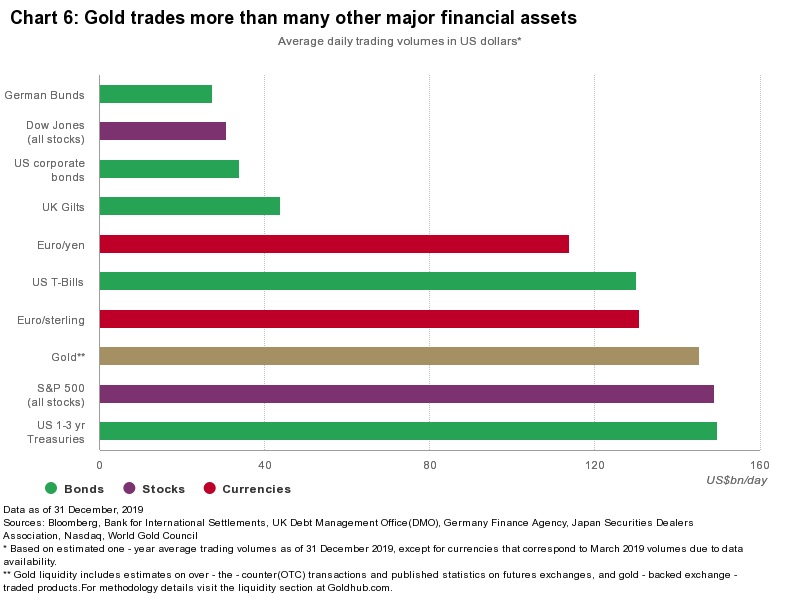
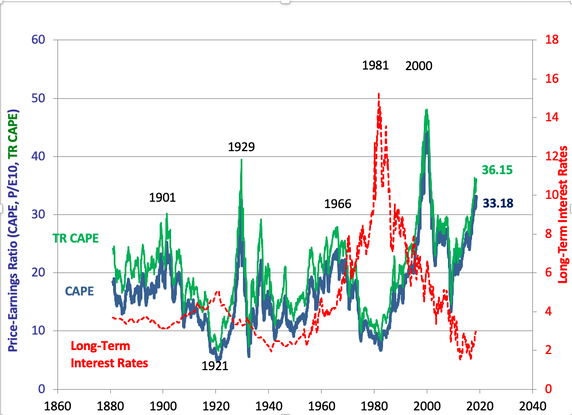
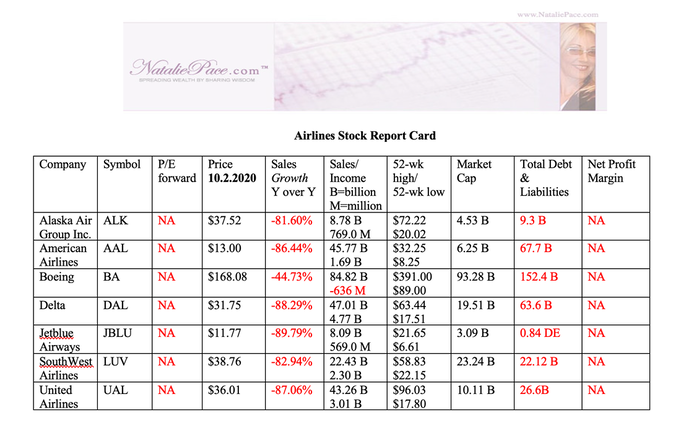
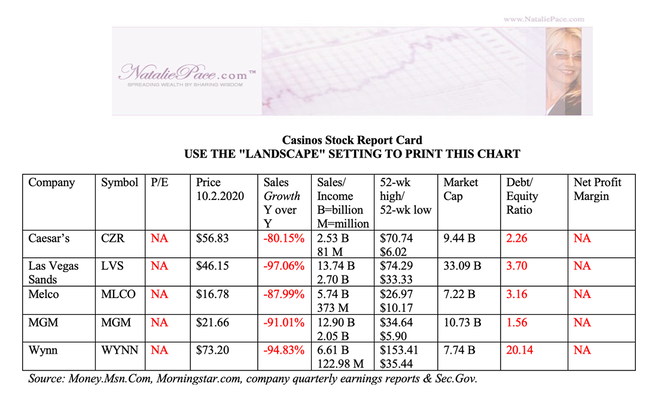
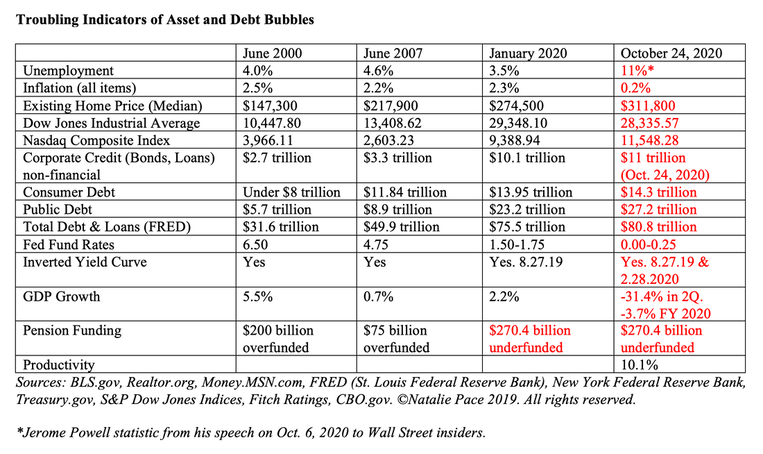
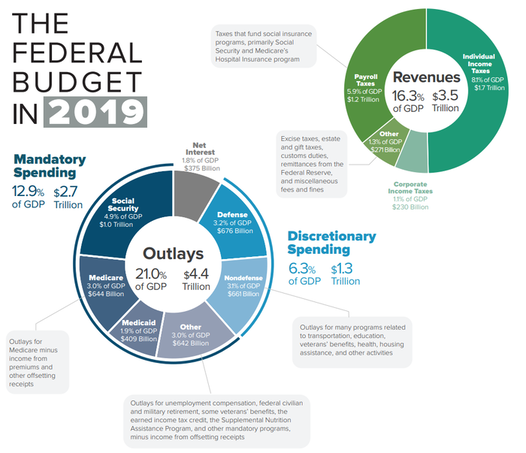

 RSS Feed
RSS Feed